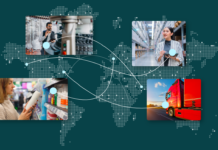Similar to an academic journey, success in business rests on having straight As— in this instance, automation, analytics, and AI.
To fully leverage the value each technology offers, enterprises must first determine what their objectives are, what kind of data they have, and how soon they want to see change in their business.
During an Oracle panel titled “Fuel of the Future — Analytics, Automation, and AI,” several C-Suite executives shared their thoughts on how these technologies are revolutionising industries, including their own.
Toll expressway operator Plus Malaysia, for example, used to have close to 4,000 employees, being an amalgamation of subsidiaries, as well as a few other companies.
“We had many legacy systems, and even our claims processing was manual. As a result, when we relied heavily on manual processing, it led to numerous errors and other issues,” noted Kang Yew Jin, the company’s CTO.
Business transformation
In 2019, Plus Malaysia decided to adopt Oracle’s ERP suite, focusing on three modules: human resources, accounting, and supply chain management.
“What we found is that, by implementing all those systems, we were able to achieve quite a bit of automation, cutting down on a lot of manual processes,” Kang said.
The company has also utilised AI for its drones and cameras, a strategy that proved to be helpful during the pandemic.
“We have implemented computer recognition technology, with AI playing a crucial role. During the pandemic, tragically, the number of suicide attempts has increased. In response, we identified eight hotspots under the bridges and installed cameras there. These cameras are designed to detect any suspicious activity or potential attempts, allowing us to take appropriate action,” the CTO continued.
Meanwhile, energy firm AG&P has been benefiting from its adoption of Oracle’s predictive analytics, which it uses to analyse its financial data.
“For example, if you reduce your HR cost by 40%, you will immediately see the impact onscreen. The same applies if you reduce your admin cost by, let’s say, 50%. This flexibility with financial data allows you to easily adjust figures and analyse where to refocus your resources,” Onkar Kapoor, Group CIO, AG&P explained.
The company also deployed AI to simplify the payment process for its gas consumers.
“Customers can self-generate their invoices by simply placing the camera in front of the metre. The AI in the app captures the metre reading, even if the metre is rotating. Once we approve the reading, customers can generate their invoices, pay online, and enjoy uninterrupted supply,” he said.
In the case of MetaVerse Green Exchange, a fintech company providing carbon-as-a-service solutions, AI has been helpful in accurately tracking their customers’ journey towards carbon neutrality.
“AI serves several key functions. First, it enhances the accuracy of the data. Second, it streamlines data processing, leading to quicker decision-making. Ultimately, these capabilities enable us to effectively address the issue of carbon emissions,” Gabriel Wong, the company’s Chief Commercial Advisor and Co-Founder, said.
The role of cloud
While automation, analytics, and AI are doing wonders for their business, Plus Malaysia, AG&P, and MetaVerse Green Exchange would not go far without a good cloud strategy in place.
Like many enterprises, Plus Malaysia has adopted a multi-cloud approach.
“We integrate our ERP and HR applications into the Oracle Cloud, as we believe it’s the optimal environment for running these workloads. Additionally, we have custom-built solutions that currently reside in other cloud platforms, and we are evaluating their alignment with our needs. Whenever we develop anything new, we adhere to a cloud-first approach,” its CTO Kang Yew Jin said.
On another note, MetaVerse Green Exchange’s Gabriel Wong believes their partnership with Oracle goes beyond a customer-vendor relationship.
“Our partnership with Oracle is a strategic one, encompassing not only technical capability but also extending to the services and broader alignment of how we perceive the market. Oracle has been instrumental in guiding our approach to the market,” he remarked.
Data-driven strategy
Another facet of the business where automation, analytics, and AI can make a huge difference is ESG, given that ESG is primarily a data problem, the experts declared.
“For financial investors or fund managers seeking to objectively quantify total financial performance, the focus often falls on ESG, which encompasses a wide and broad range of factors. However, the emphasis should particularly be on emissions. This is the area where we are seeing significant momentum in terms of both supply and demand,” Wong said.
At the end of the day, businesses stand to gain immensely from a tech partner that can handle and manage all these technologies, relieving them of the need to build an entire IT infrastructure,” said Jay Tuseth, Vice President of Cloud Applications, ASEAN, and General Manager of Customer Experience, APAC, Oracle.
“ESG is centred on insight and the ability to perceive what’s happening, not only within the business itself but also throughout the supply chain and value chain, from customers to suppliers. Modern applications can provide this visibility, offering executives dashboards of information that grant them a clear understanding of what’s occurring. This insight ensures that decision makers can gauge whether their choices are leading to the desired outcomes,” he concluded.
















